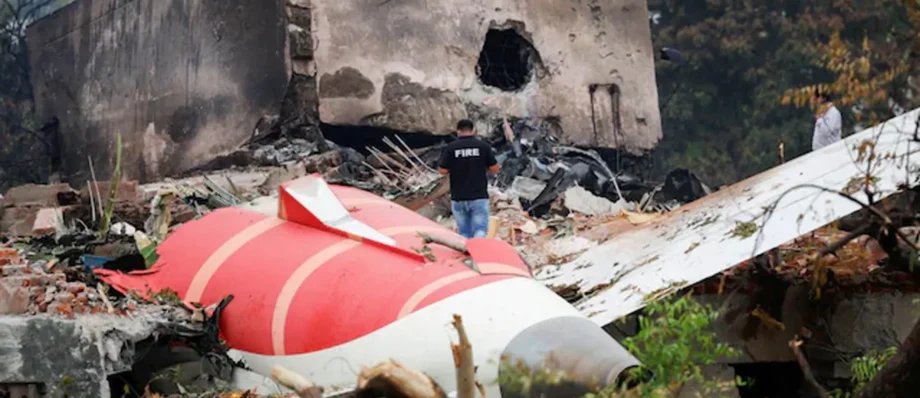Eye-Opening Crash in Ahmedabad: Air India 787 Disaster Forces 787-8 Fleet Grounding Talks
On June 12, 2025, a catastrophic Air India Boeing 787-8 Dreamliner crash in Ahmedabad, Gujarat, claimed 270 lives, marking the deadliest aviation disaster in over a decade and the first fatal incident involving a Boeing 787. The Flight AI171, bound for London’s Gatwick Airport, erupted into a fireball seconds after takeoff, crashing into a medical college hostel and killing 241 passengers and crew, with 24 ground casualties. This tragedy has sparked urgent safety inspections and discussions about grounding India’s Boeing 787 fleet, raising questions about aviation safety and Boeing’s reliability.
The crash, which left only one survivor, Vishwash Kumar Ramesh, occurred during a lunch break at the hostel, amplifying the devastation. CCTV footage revealed the plane losing altitude moments after takeoff, with its landing gear unusually extended, crashing into buildings below. Recent reports suggest investigators are focusing on potential issues with engine thrust, flaps, and hydraulic systems, as the aircraft, operational since 2014, issued a Mayday call before the disaster. Both black boxes—the flight data recorder and cockpit voice recorder—have been recovered, offering critical clues to unravel the cause.
India’s Directorate General of Civil Aviation (DGCA) swiftly ordered Air India to conduct enhanced safety checks on its 33 Boeing 787-8/9 aircraft equipped with GE Aerospace GEnx engines. These checks, effective from June 15, include one-time inspections of takeoff parameters, flight control systems, and fuel monitoring, alongside power assurance tests within two weeks. While initial speculation suggested a full fleet grounding, the DGCA and Air India have clarified that no such decision has been made, with eight aircraft already inspected. Posts on X reflect public anxiety, with some users calling for a temporary halt to 787 operations until the investigation concludes.
The Ahmedabad crash has reignited scrutiny of Boeing, already grappling with a tarnished reputation following 737 Max crashes in 2018 and 2019 and a 2024 Max 9 door plug incident. A 2024 whistleblower report alleging improper fastening of 787 fuselage sections raised concerns, though Boeing denied immediate safety risks. The Dreamliner, introduced in 2009, faced earlier grounding in 2013 over lithium battery fires, but this crash is its first fatal incident. Experts note that the investigation will examine maintenance records, pilot training, and environmental factors, including Ahmedabad’s high temperatures of 100°F, which could affect aircraft performance.
The human toll has left Ahmedabad reeling. Families like that of Akash, a local who died attempting to save his mother from the blaze, are grappling with grief. DNA matching has identified 11 victims, but delays in releasing bodies have frustrated relatives, with some, like Rafiq Abdul Hafiz Memon, pleading for clarity. Prime Minister Narendra Modi called the crash a “heartbreaking tragedy,” while Tata Group, which owns Air India, pledged support for victims’ families. The UK, with consular support for the sole survivor, expressed condolences through High Commissioner Lindy Cameron.
The aviation industry faces broader implications. Air India, under Tata ownership since 2022, is navigating a reputation crisis as it modernizes its fleet. The DGCA’s probe, led by a government panel, is expected to deliver a report within three months, exploring all causes, from mechanical failure to human error. The crash site, marked by charred debris and a lingering stench of jet fuel, continues to be combed for evidence. Meanwhile, Boeing’s stock dipped 4.8% on June 12, reflecting investor concerns, though the company advised operators that no additional measures are needed beyond routine checks.
As India mourns, the Ahmedabad crash underscores the fragility of aviation safety and the stakes for Boeing and Air India. The ongoing investigation will shape the future of the 787 fleet and public confidence in air travel. For now, the nation awaits answers, hoping to prevent such a tragedy from recurring.


